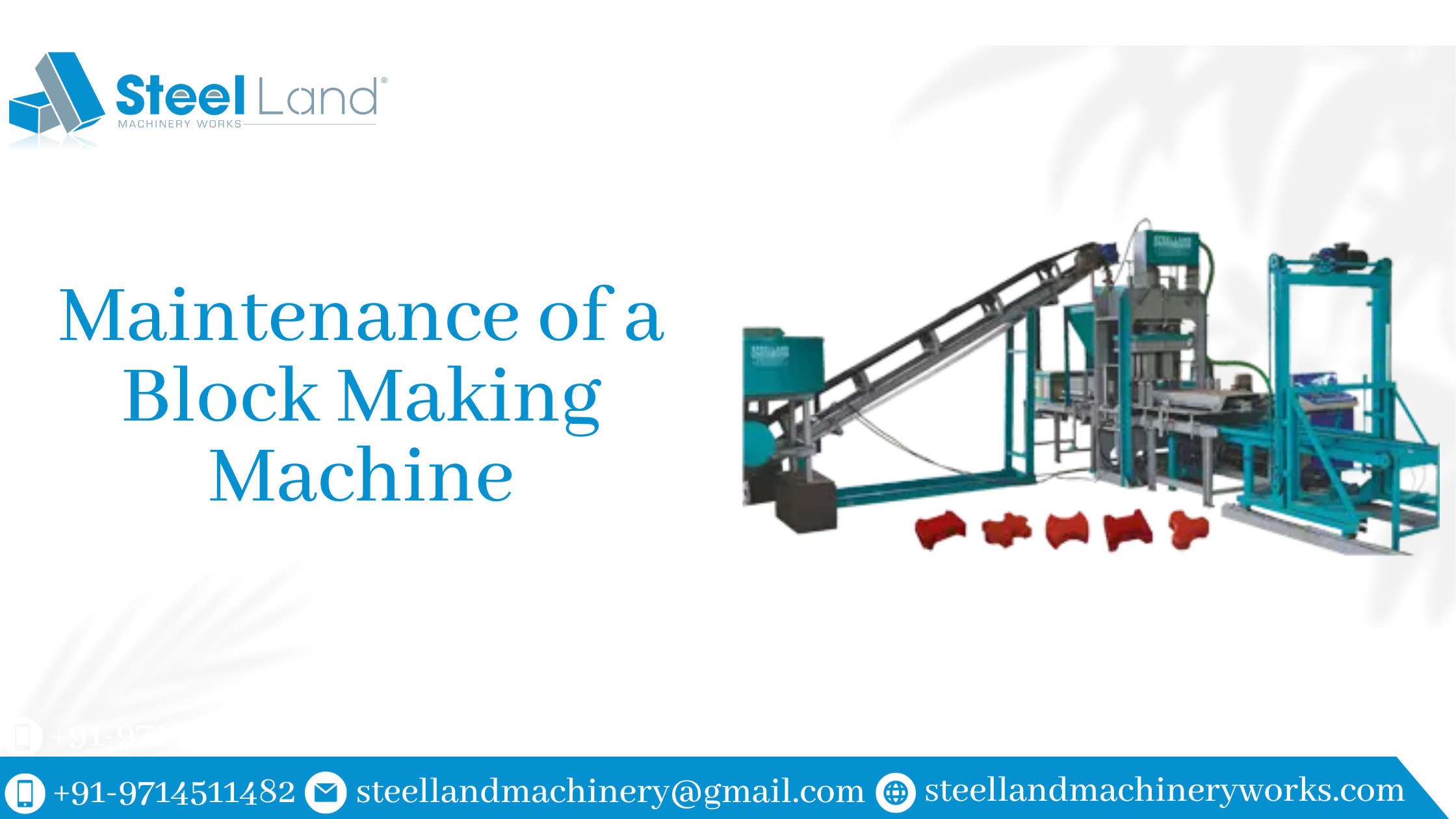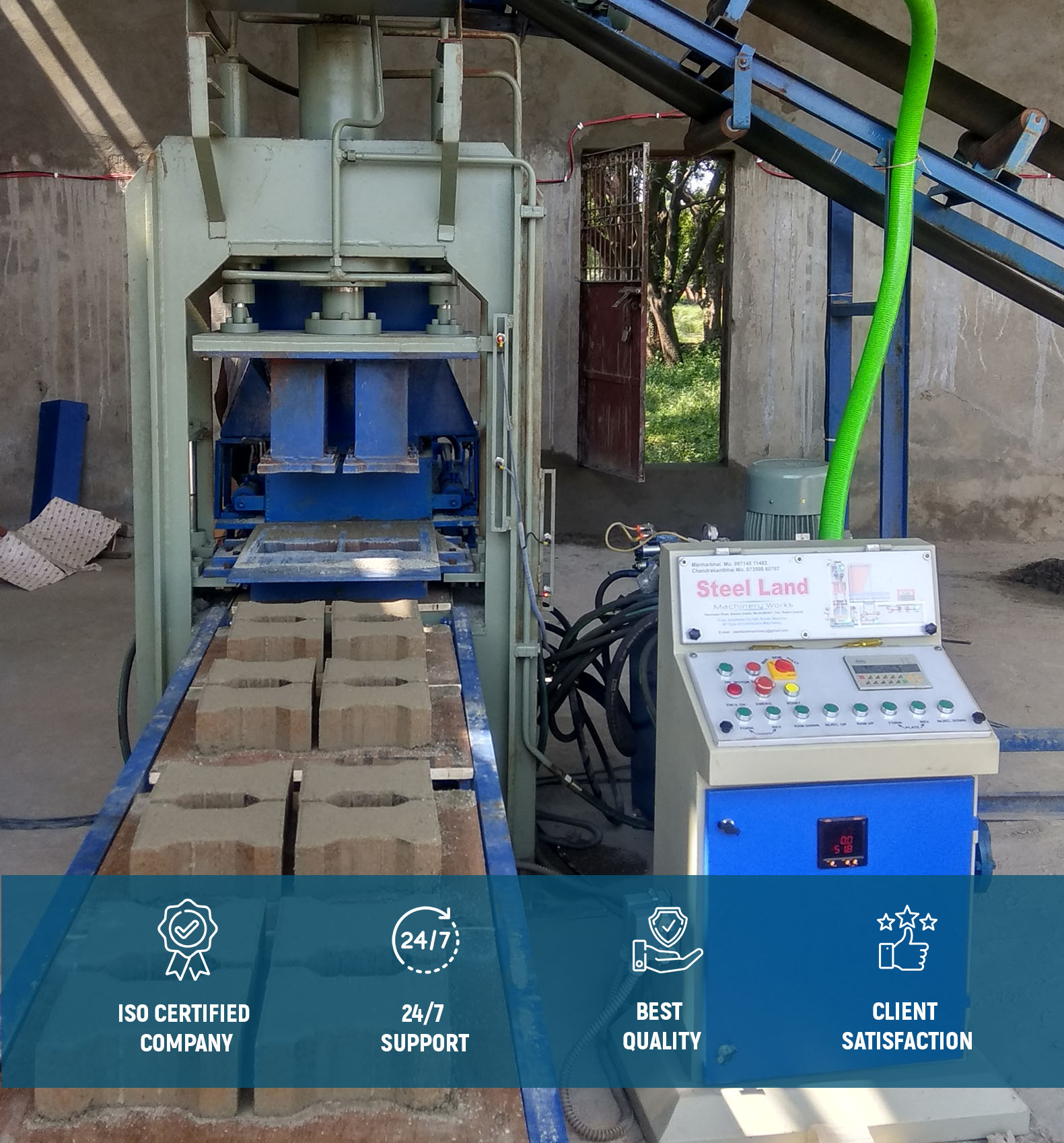Block manufacturing machines, like the automatic concrete block production machine, are becoming more and more popular in both developed and developing nations due to their ability to provide results quickly, consistently, and robustly. There is a great need for these equipment in South-East Asia and Africa, which are expanding quickly, particularly in the construction industry. Block Making Machines are incredibly effective, but according to block making machine manufacturers in India, their maintenance is crucial. In addition to working in the worst weather conditions, these large equipment are also subjected to sand, gravel, and other micro particles. These machines operate in extremely difficult environments, so in order to maintain optimal machine performance, extra attention must be taken during maintenance.
Tips to maintain your block making machine:
-
Provide proper training to operators
Today, training plays a major role in any organisation. Offering training gives staff members the know-how to get the most out of their equipment in addition to teaching them how to operate it safely.
Workers may leave, abilities may rust, and poor performance results in malfunctions. It can be simple to overlook training when dealing with new employees. Ideally, a mechanism should be set up to guarantee that these training sessions are conducted for both new hires and returning personnel over predetermined intervals of time.
-
Schedule maintenance at regular intervals
By keeping all parts in good functioning condition or by creating a recurring plan, a maintenance programme lowers the likelihood of malfunctions. Block machines have a number of unique characteristics that need to be examined to guarantee both a long lifespan and continuous efficiency.
Maintenance tasks include inspecting the feed tray scrapers to prevent excessive spillage, inspecting all grease points, inspecting the mould and mould box vibrators, inspecting the anti-vibration mounts, and verifying that the sensors are kept clean and in good operating order.
-
Maintaining cleanliness
Block-making machines are frequently used in dusty, rocky settings, which can negatively affect both the machine’s appearance and the parts it utilises. To ensure that the equipment runs as efficiently as possible, it is essential to clean things like grease spots and sensors. Unclean sensors can lead to a variety of issues, including machines that continue operating without material.
If at all feasible, large machinery should be kept in a shed or another building. Rot and rust can result from exposure to elements such as moisture and wind. If the machinery is not in use, it should be run on a regular basis.
-
Greasing regularly
When using block making machines without an auto lubrication option, everyday greasing is necessary. All moving parts have less friction when they are lubricated. The life of major machinery parts and equipment is extended by a regular programme of good lubrication maintenance.. Use the appropriate lubricant, please. Every component requires a different type of oil or grease. Review the advice provided by the manufacturer.
One of the best ways to identify issues with heavy machinery is to have the lubricants examined. Particles in the spent oil are examined by experts. The composition of any impurities will reveal which component might be worn out or breaking down.
-
Replace parts as and when needed
Smaller parts on frequently used equipment will eventually wear out and need to be replaced in order to maintain optimal performance. It is preferable to replace them as soon as possible because doing so frequently keeps other parts from being harmed or worn out. It’s a good idea to maintain a modest supply of frequently used, popular parts on hand in order to minimise equipment downtime.



